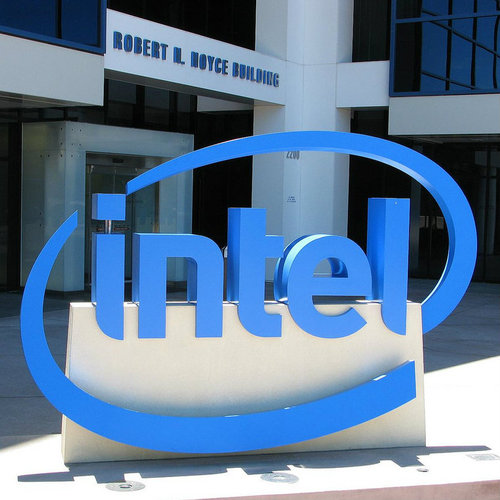Intel is considering a move for Broadcom out of concern that a merger between Broadcom and Qualcomm would be a major threat.

Semiconductor giant Intel is reported to have considered making a bid for chipmaker Broadcom, which is trying to buy mobile chips company Qualcomm in a $117 billion deal.
That deal would go down as the technology sector's largest ever, but an Intel Corp. (Nasdaq: INTC) acquisition of Broadcom would be an even bigger tie-up. While Broadcom Corp. (Nasdaq: BRCM) and Qualcomm Inc. (Nasdaq: QCOM) are each valued at around $100 billion, Intel has a market capitalization of about $240 billion.
According to the Wall Street Journal, Intel wants antitrust authorities to scupper Broadcom's bid for Qualcomm because it is concerned the resulting player would pose a challenge to its own business.
Should the deal seem likely to go ahead, Intel might intervene and launch its own takeover bid for Broadcom to eliminate any competitive threat and create an even bigger semiconductor giant, reports the WSJ, citing people close to the matter.
Both Broadcom and Qualcomm are focused on areas that have been growth priorities for Intel -- smartphone chips and data centers. (See Intel Eyes Fab 5G Future, Not Another Mobile Mess.)
With its focus on cellular technologies, Qualcomm supplies the chips used in many of today's most attractive gadgets. But it is currently embroiled in a licensing dispute with iPhone maker Apple Inc. (Nasdaq: AAPL), creating an opportunity for Intel to dislodge Qualcomm as Apple's main supplier. (See Apple Trying to Drop Qualcomm – Report and Qualcomm Seeks Ban on iPhone Imports.)
Broadcom CEO Hock Tan believes he can resolve the dispute between Qualcomm and Apple.
Just as Intel is going after Qualcomm's smartphone business, so Qualcomm is pushing into the data center market -- where Intel's share is thought to exceed 90% -- with the development of server processors based on designs from the UK's ARM, now owned by Japan's SoftBank Corp. (See SoftBank Muscles In on ARM in $32B Deal.)
Broadcom, which provides switches to data center equipment makers, could see an opportunity to sell Qualcomm's chips through its own data center channels, reckons the WSJ.
There is also the prospect of a clash between Intel and a combined Qualcomm and Broadcom in the automotive sector. Intel last year bought a company called Mobileye, which develops sensors for autonomous car features. Qualcomm, meanwhile, is trying to complete its own takeover of NXP Semiconductors N.V. (Nasdaq: NXPI), a chipmaker that is similarly focused on the automotive industry. Broadcom's heft could make the tie-up between Qualcomm and NXP an even stronger market force. (See Intel Buying Mobileye for $15 Billion and Qualcomm Ups NXP Bid, Angers Broadcom.)
For all the latest news from the wireless networking and services sector, check out our dedicated mobile content channel here on Light Reading.
Nevertheless, several analysts quoted in the mainstream media have played down the prospect of any deal between Intel and Broadcom, noting the hurdles it would face. Combining two huge businesses with very different product portfolios would be immensely challenging.
In a statement provided to Reuters, Intel said it did not comment on market rumors or speculation but was focused on integrating previous acquisitions.
"We have made important acquisitions over the last 30 months -- including Mobileye and Altera -- and our focus is on integrating those acquisitions and making them successful for our customers and shareholders," the company said in that statement.
Altera is a programmable chip maker that Intel bought in 2015.
Qualcomm has been resisting Broadcom's takeover moves, which have more recently encountered regulatory hostility in the US. (See Feds Want Full Investigation Into Broadcom's Qualcomm Bid and Qualcomm Rejects Latest Broadcom Bid.)
Authorities are said to be worried about Chinese influence over Broadcom, whose headquarters are currently in Singapore. Underpinning that is concern about China's growing competitiveness in areas such as 5G and artificial intelligence, which are set to become increasingly important in the next few years.
— Iain Morris, News Editor, Light Reading
Read more about:
AsiaAbout the Author(s)
You May Also Like










